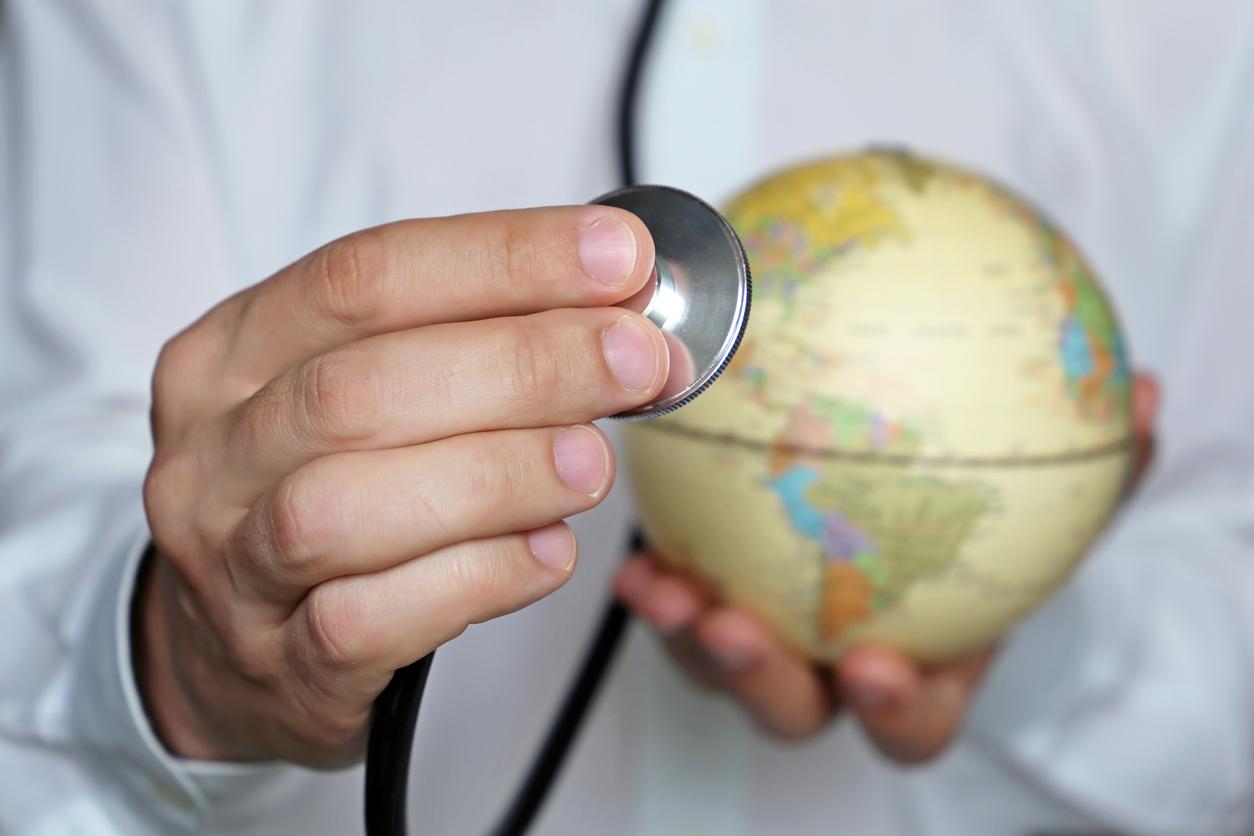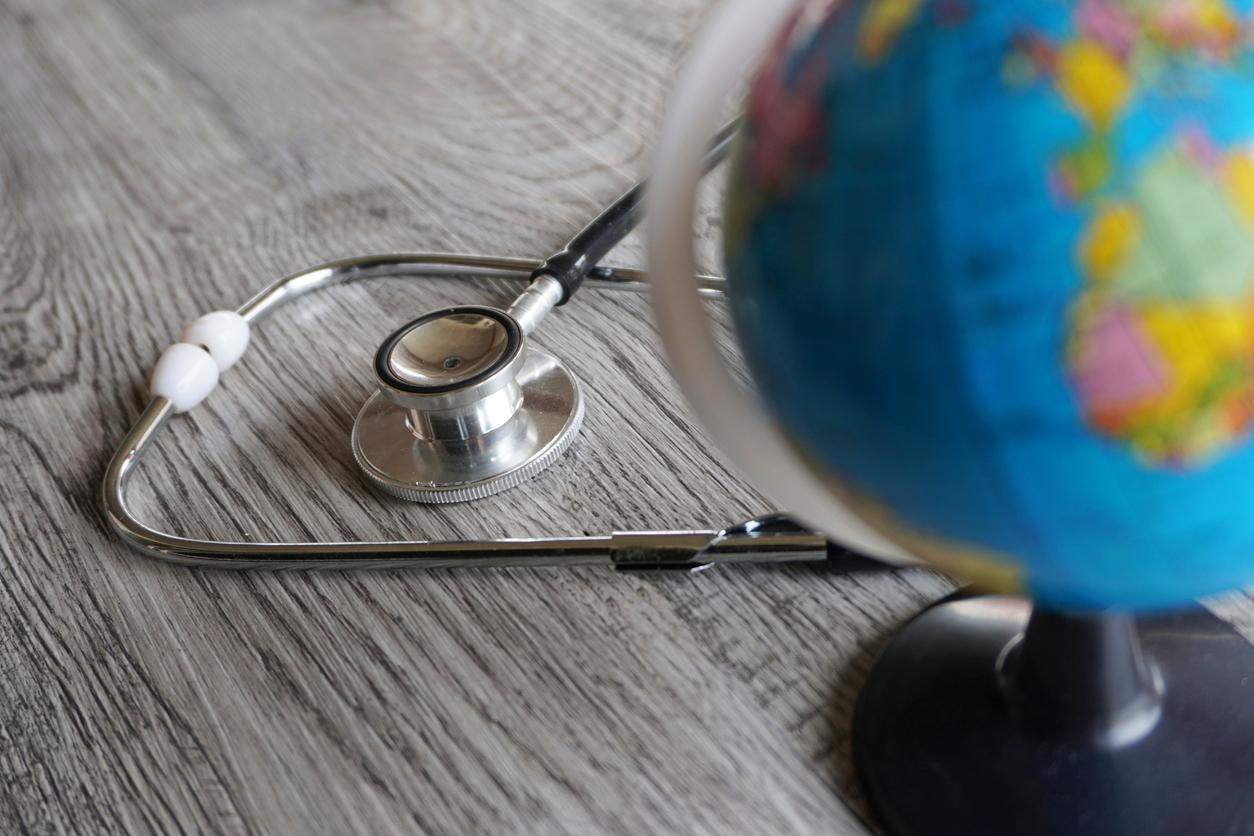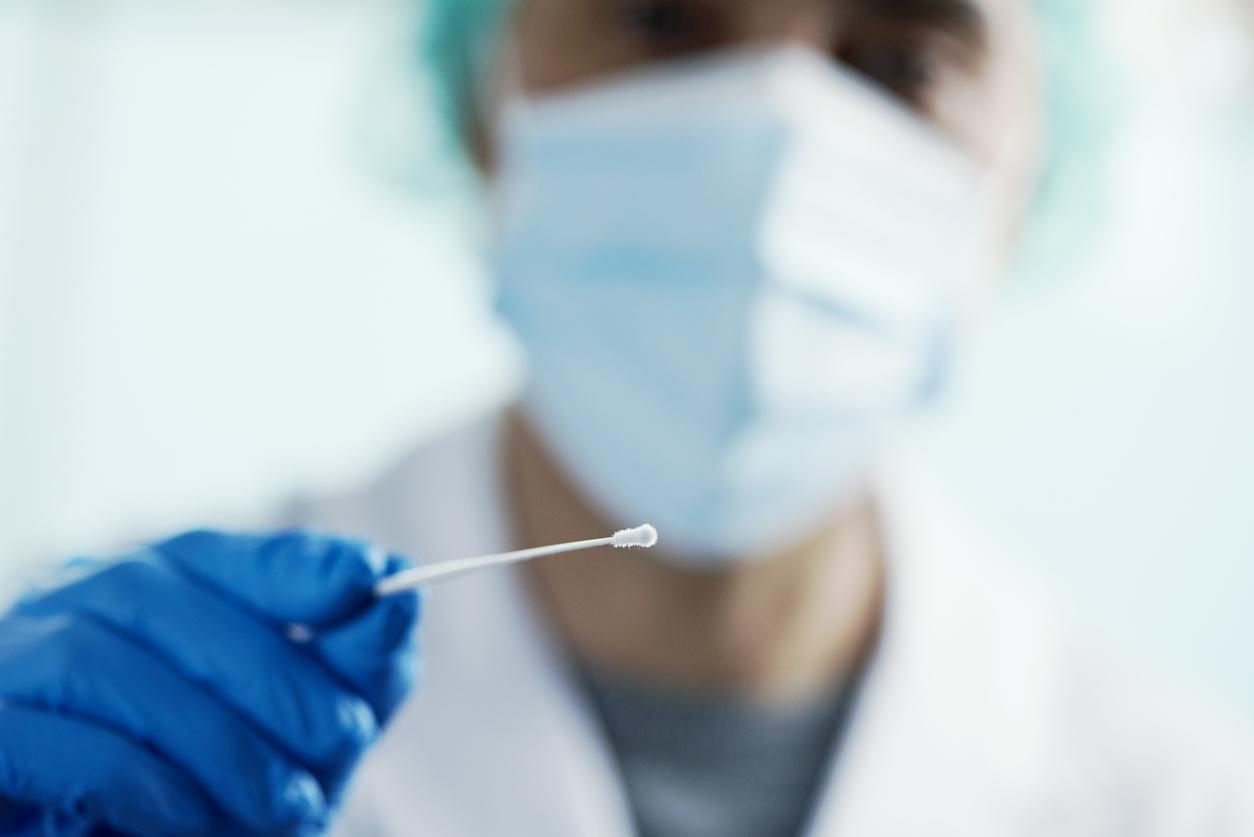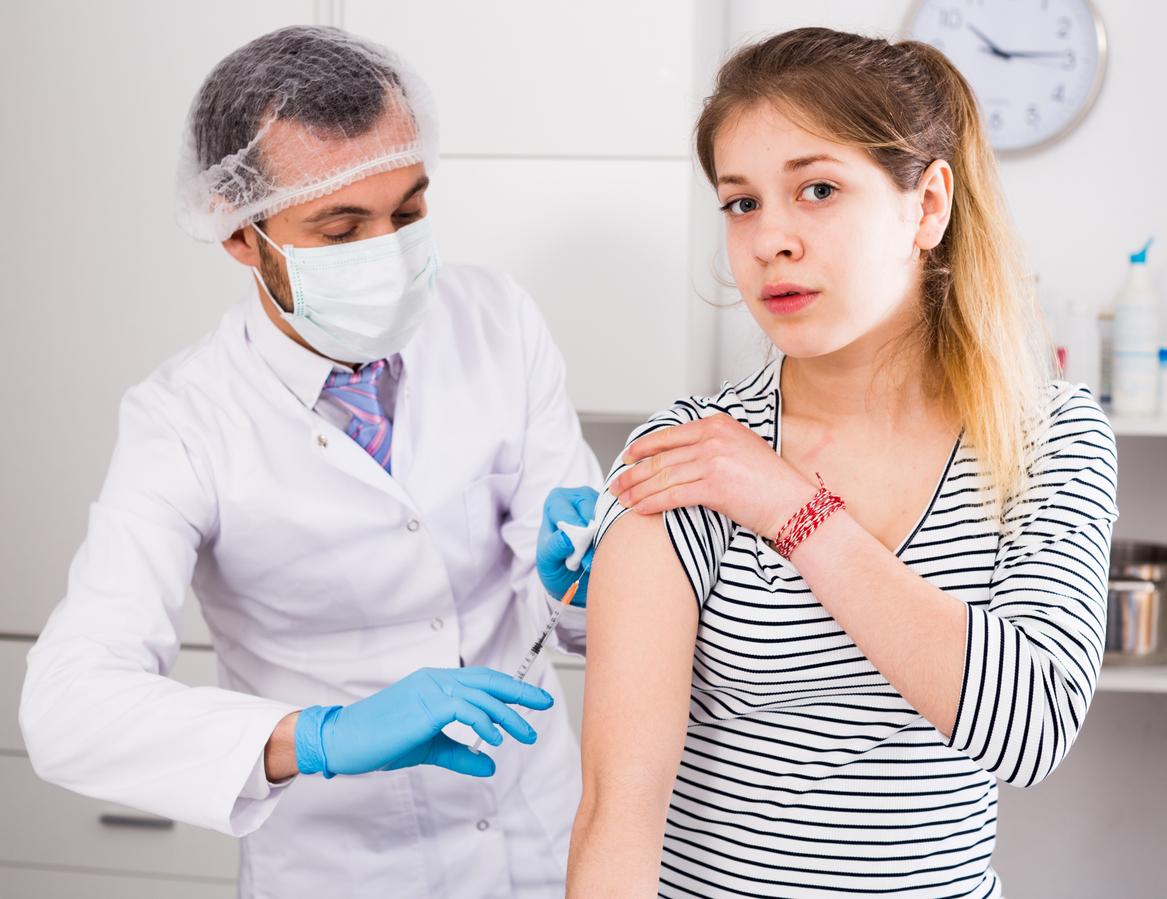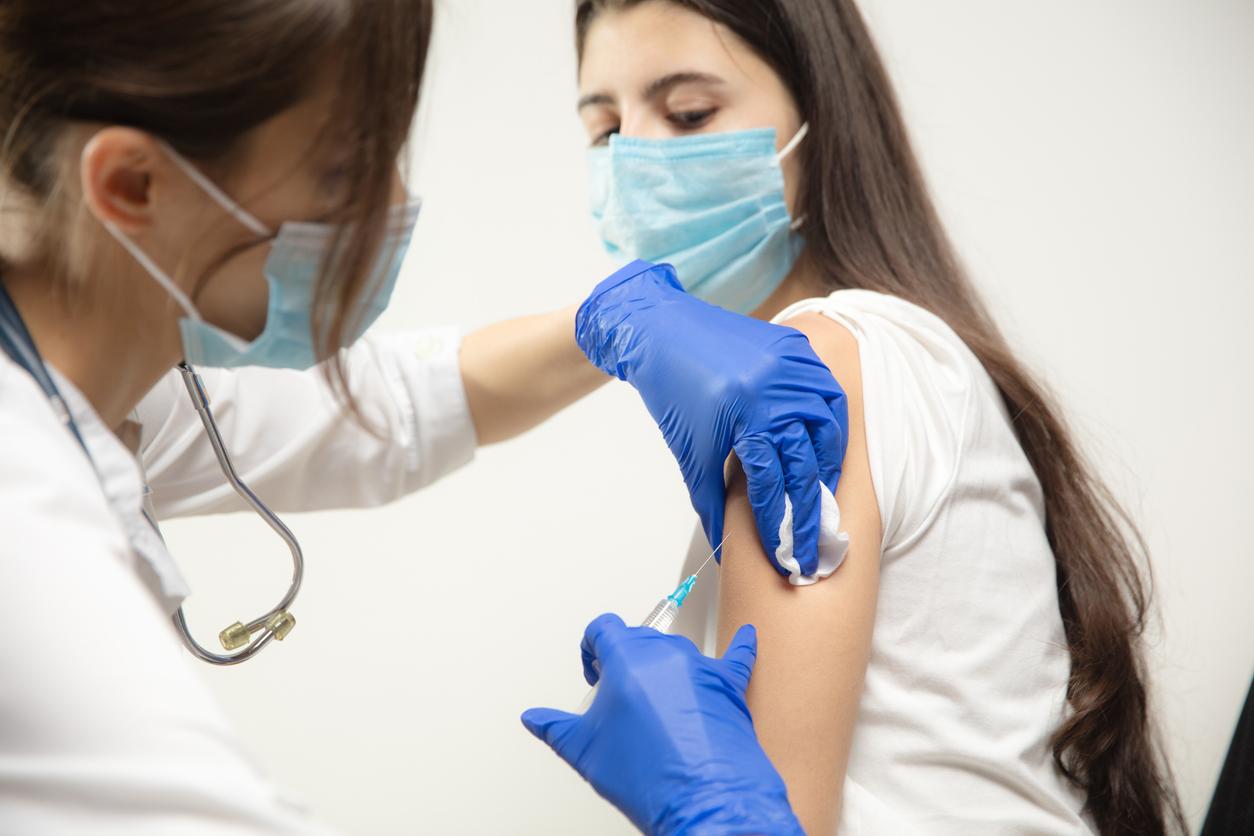This year, vaccination against the papillomavirus, which causes cervical cancer, is offered to all 5th grade students. It is non-obligatory and free.
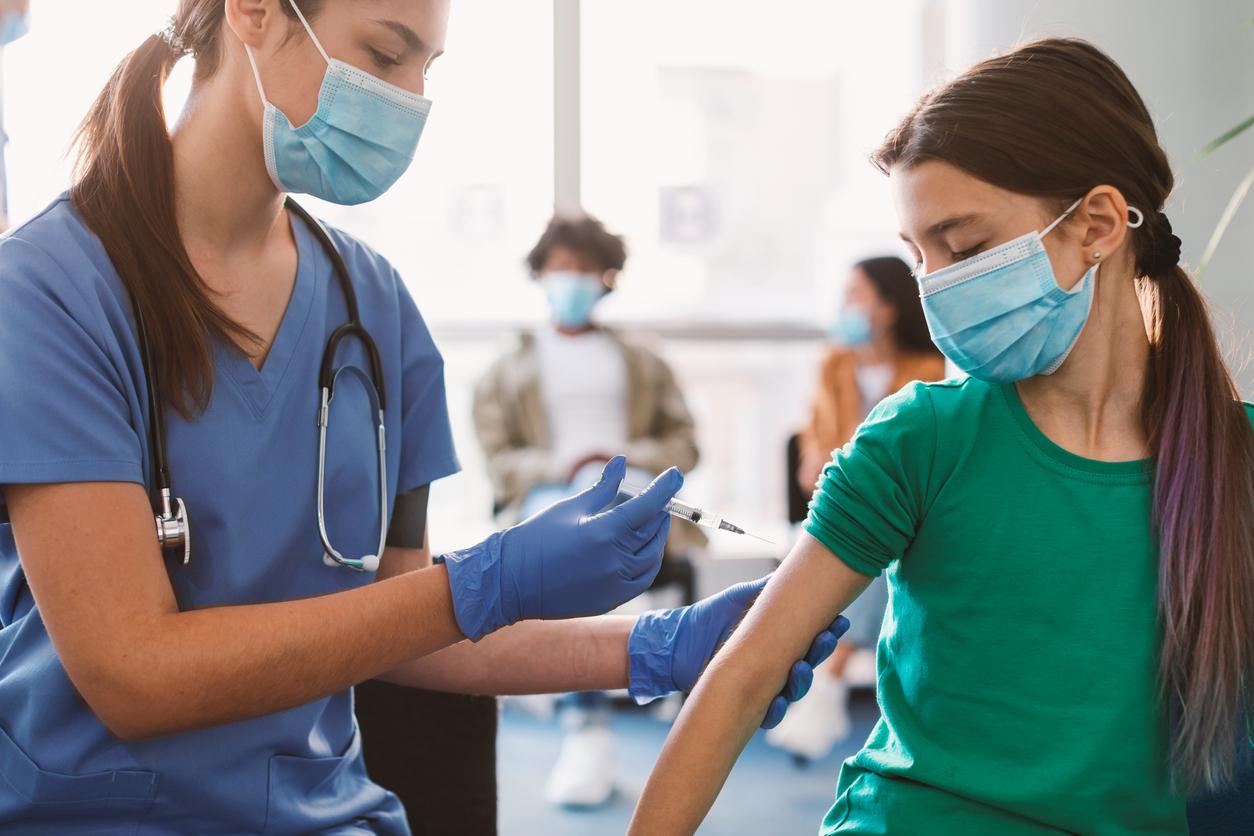
- Monday, September 4, a vaccination campaign against the papillomavirus for 5th grade students begins.
- This vaccine will be non-obligatory and free.
- It protects against infections linked to human papillomaviruses.
Students return to school on Monday September 4. For those starting their 5th year, this return to school coincides with the launch of a vaccination campaign against the papillomavirus. Announced by Emmanuel Macron at the end of February, it is preceded by an information period. “The agreement of both parents will be necessary to carry out this free vaccination which is not obligatory.specifies the government in a communicated. Starting in the fall, all 5th grade students who wish will be able to receive the vaccine.
College: a vaccination campaign to reduce the incidence of cervical cancer
Since 2007, vaccination against human papillomavirus infections has been recommended for young girls, and for boys since 2021. “These infections are due to very common viruses which are transmitted by simple contact from the first sexual relationsprecise Vaccination Info Service. While most of these viruses are harmless, some HPV can be responsible for precancerous lesions and then cancer..”Infection can lead to different cancers: cervical cancer, cancer of the penis, anus, vulva and vagina.”HPV viruses are also responsible for anogenital warts which are very common in both women and men., warns the site. Each year, 6,000 new cases of cervical cancer and 30,000 precancerous lesions are diagnosed in France.
Papillomavirus vaccination: why is it intended for 5th grade students?
Vaccination is one of the best ways to protect yourself from these infections. Generally speaking, it is recommended for young girls and boys aged 11 to 14. “The vaccine is all the more effective because young girls and boys have not yet been exposed to the risk of HPV infection.“, indicates the government. Concretely, this means that it is recommended to administer the vaccine before any contact with these viruses, i.e. before the start of sexual life. However, the current campaign targets 5th grade students, who are on average old of 12 years, that is to say in the recommended age group for vaccination. According to the government, “this measure will allow 800,000 students per year to be protected against HPV-related cancers.”.
What are the side effects of the human papillomavirus vaccine?
The vaccine is administered in two doses, spaced at least six months apart. “In the vast majority of cases, there are no side effects after HPV vaccinationestimates Vaccination Info Service. Among the most common side effects, we may observe pain or redness at the site of the injection. Shortly after the first vaccinations, the serum was suspected of increasing the risk of autoimmune diseases. According to investigations by theNational Medicines Safety Agency“vaccination against human papillomavirus (HPV) infections with Gardasil or Cervarix does not lead to an increase in the overall risk of occurrence of autoimmune diseases, thus confirming the data from the French and international literature..
According to Inserm45.8% of young girls aged 15, and 6% of boys of the same age, had received at least one dose of the vaccine, at the end of 2021. The objective of the Cancer plan is to achieve 80% vaccination coverage for 11 – 19 years old in 2030.










